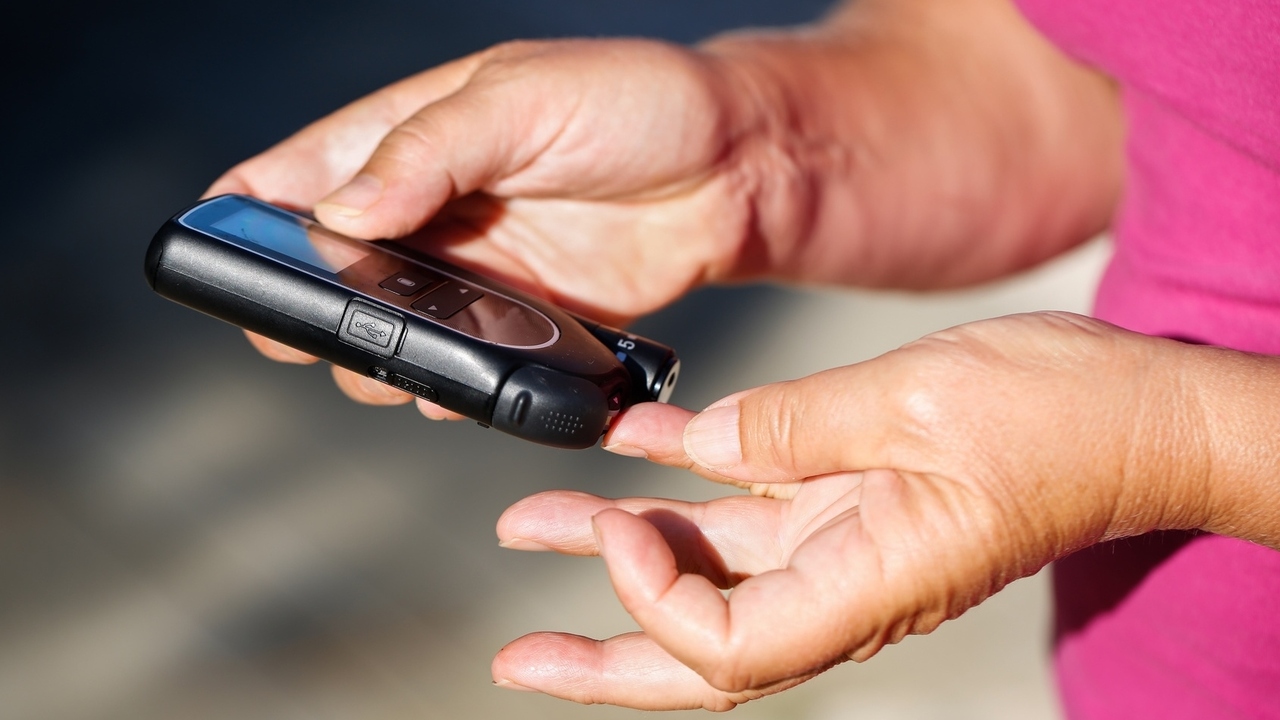Diabetes type 1 and vitamin D deficiency are correlated. According to recent medical reports, either one may cause the other. Thus, it may be possible to get into a vicious cycle where lack of vitamin D aggravates the diabetic condition, and the diabetic condition produces even lower levels of vitamin D.
A study at the University of Arkansas showed that type 1 diabetes may cause vitamin D deficiency because of an increase in the urinary excretion of vitamin D binding protein. Their study compared 115 subjects with type 1 diabetes, age 14 to 40 years, with 55 age-matched healthy controls. The diabetic subjects had lower levels of vitamin D in the blood, along with higher levels of both vitamin D binding protein and albumin in the urine. Diabetic nephropathy is a common complication of diabetes that impairs kidney function and produces signs of protein in the urine.
Low levels of vitamin D can lead to poor glycemic control in diabetes, with further damage to the kidneys and other tissues. Reference 2 reported better glycemic control and improved glycosylated hemoglobin levels in diabetic patients who received 4,000 IU of vitamin D3 for 12 weeks. The patients in the study all had vitamin D deficiency, defined as less than 50 nmol.L of 25-hydroxyvitamin D in the blood, at the start of the study.
Vitamin D deficiency is common in children and adolescents with type 1 diabetes, according to Reference 3. The prevalence varies widely over different studies in the literature, ranging from 15 to 84 percent, depending on location and season. Winter levels of vitamin D were lowest.
Sunlight, which catalyzes the production of vitamin D in the skin, has been shown to reduce symptoms in other autoimmune conditions such as multiple sclerosis. Blood tests can detect deficiency, which can be easily corrected with supplements in most cases.
References:
1. Thrailkill KM et al, “Enhanced excretion of vitamin D binding protein in type 1 diabetes: A role in vitamin D deficiency?”, J Clin Endocrinol Metab. 2011 Jan; 96(1): 142-9.
2. Aljabri KS et al, “Glycemic changes after vitamin D supplementation in patients with type 1 diabetes mellitus and vitamin D deficiency”, Ann Saudi Med. 2010 Nov-Dec; 30(6): 454-8.
3. Janner M et al, “High prevalence of vitamin D deficiency in children and adolescents with type 1 diabetes”, Swiss Med Wkly. 2010 Sep 3; 140: w13091.
4. Sunlight and autoimmune disease:
https://www.empowher.com/multiple-sclerosis/content/sunlight-reduces-autoimmune-symptoms
Linda Fugate is a scientist and writer in Austin, Texas. She has a Ph.D. in Physics and an M.S. in Macromolecular Science and Engineering. Her background includes academic and industrial research in materials science. She currently writes song lyrics and health articles.






Add a CommentComments
There are no comments yet. Be the first one and get the conversation started!